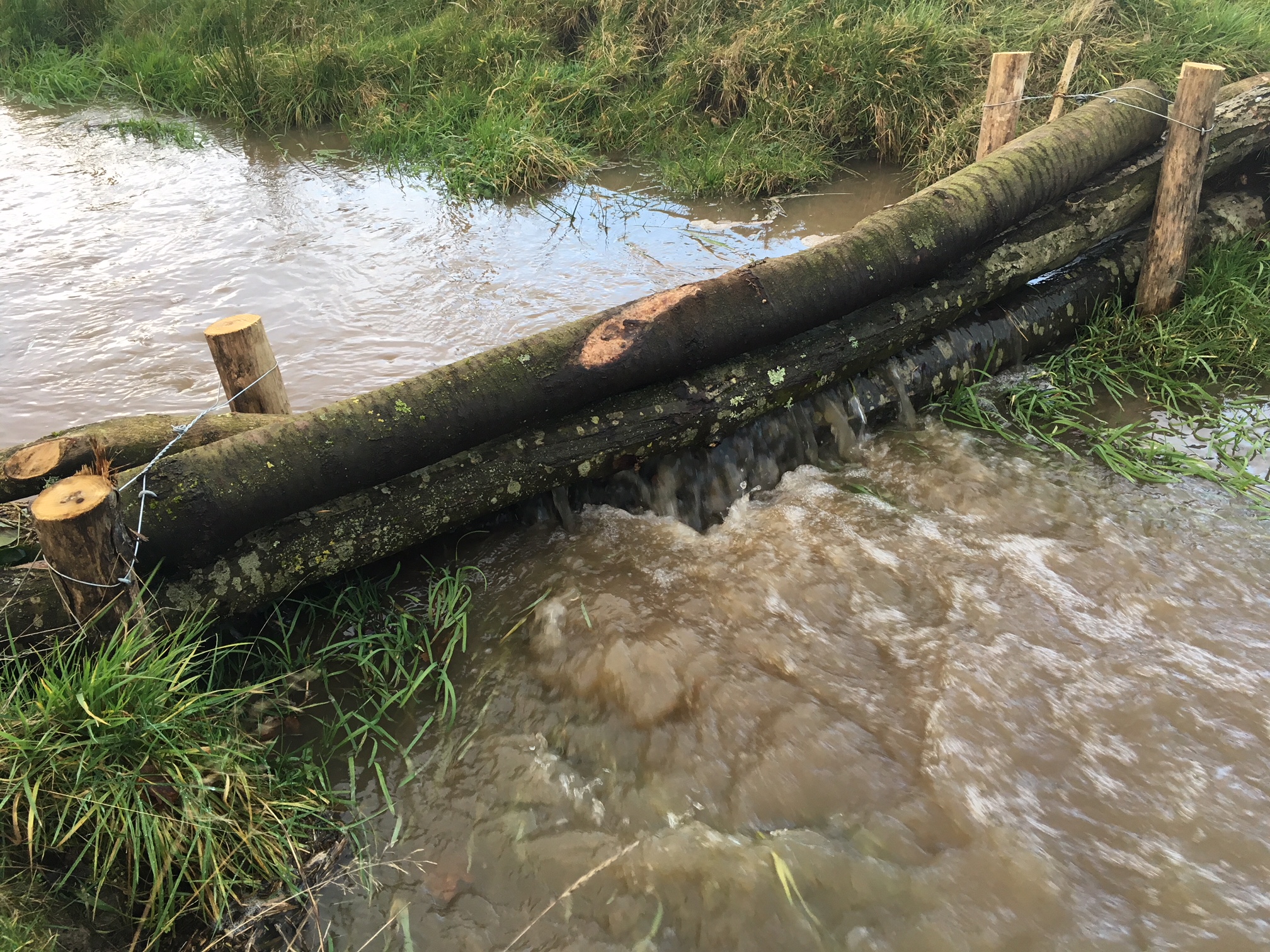A new report commissioned by RSA Insurance, an Intact company, and The Wildlife Trusts shows that every £1 invested in natural flood management (NFM) is expected to deliver £10 of benefits over 30 years.
Nature is one of the best defences against flooding in a changing climate, but the partners behind the report believe that more investment, data and support is needed to increase its long-term positive effects.
Natural flood management means investing in beaver wetlands, creating ponds, restoring bogs, rewilding rivers and de-paving so that these areas can soak up water and hold it back in times of high rainfall*. Evidence collated by the Environment Agency shows that natural flood management is effective at reducing the overall damage from flood risk; the new report has gone further to focus on wider benefits including better habitats for wildlife, carbon storage, and improvements to health and wellbeing.
Alongside the devastating impacts that flooding can have on people, it is the UK’s most expensive natural hazard, costing approximately £2.2 billion annually. This is projected to rise by a range of 19-49% by the 2050s according to the UK’s latest Climate Change Risk Assessment.

The new research looked at ten natural flood management schemes created by individual Wildlife Trusts. Collectively, they had an average total cost-benefit ratio of 4:1 over ten years rising to 10:1 over 30 years. The schemes included:
- Upper Sherbourne, Warwickshire Wildlife Trust: leaky dams and retention pools installed to help stop properties and roads flooding in a suburb of Coventry
- Limb Brook, Sheffield Wildlife Trust: wetland expansion, 20 attenuation ponds created, 50+ leaky dams installed, de-culverted streams, and hedge planting
- River Otter, Devon Wildlife Trust: wetlands restored by beaver dams, which can attenuate flood flows by an average of 30%, even during wet (high flow) conditions
- Gloucester & Cheltenham Waterscapes, Gloucestershire Wildlife Trust: 50 homes will benefit from decreased risk of flooding due to creation of rain gardens, de-paving driveways, green verges, attenuation ponds and scrapes, which were delivered through RSA funding.
Additionally, a survey of surrounding communities found that more than 85% of respondents who had access to their local scheme felt it encouraged physical health and exercise, while 92% felt they were good spaces for positive mental wellbeing and provided opportunities to see nature.
Kathryn Brown, director of climate change and evidence at The Wildlife Trusts, says:
“One in six houses across the UK is currently at risk of flooding and climate change is leading to more frequent and heavier rainfall – and we know that this will become more severe in the future. The good news is our research proves that restoring natural habitats can help us tackle the effects of climate change – and in doing so, help reverse nature declines.
“The economic benefits of investing in natural flood management are clear but just 1% of the public funding for managing flood risk in England goes to natural flood management. Natural approaches to water management should be Government’s first port of call wherever appropriate – and we need to see such benefits regularly accounted for, measured and valued by both the Government and private sector in future.”
Ken Norgrove, CEO of UK & International at RSA Insurance (an Intact Company), says:
“RSA has been on the frontlines of extreme weather events alongside our customers for decades and sees the devastation they can cause. Our teams are often on the ground within the first few hours of a flood helping people, business owners, and communities recover and rebuild.
“Climate change will continue to be a defining issue of our century, so it’s important for society to prepare, adapt and become more resilient. By investing in innovative natural flood management solutions, we can help safeguard people, businesses, and the environment for a sustainable future.”
Current land management practices lead to soil compaction, and ever more hard surfaces in our landscapes, meaning that water is not absorbed into the land as well as it could be and can lead to greater flooding of homes and businesses.
The report, Assessing the multiple benefits of natural flood management, recommends:
- Improved Data and Standardisation: A standardised approach to project design, monitoring, and valuation is needed to increase investor confidence.
- Government Support: A government-led framework, including support for private finance markets and improved data collection, is essential for increasing investment.
- Private Sector Opportunities: The private sector, including insurers, can play a more active role in NFM investment by recognizing the broader economic and environmental benefits of NFM.
Read Assessing the multiple benefits of Natural Flood Management – summary and full report.



